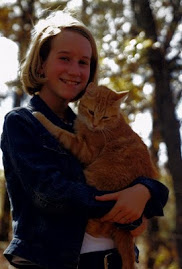Every January first, thousands of
us resolve to make some changes. We’re gonna do it RIGHT this year, yes sir.
Haven’t up until now, but this year will be different! Armed with steely
determination, we throw ourselves wholly into the new project, goal, or dream,
certain that this year will be the year.
So how long does your resolve usually
last? Have you given up by tax day? Valentine’s Day? January 2?
The problem with resolutions is
that we have no fuel for them. We are trying to drive to Alaska on a half tank of gas. Willpower.
Determination. Disgust. Shame. Guilt. Whatever fuel we are using, it burns out
long before we want it to. With a sigh of defeat, we go back to our comfort
zone and hope for next year. I stopped making resolutions years ago when I
learned how weak my own resolve can be.
So then how do we make those
important life changes? The answer is opposite of what we think. Our natural approach
is to grab hold of that goal and go after it with gusto. We make it our focus,
think about it, plan for it, and obsess over it. Until we wear out and shuffle back to the old habits.
.
.
That approach is backward.
The more we focus on something,
the less likely we are to see the results we want. That goal becomes our new god, in a sense. We think about it, sacrifice for it, plan around it, and serve it. Making something or someone our god never works out well. We must come face to face
with our own weakness and limitations. When we stop believing that we have the
strength and goodness to fix ourselves we are starting to get closer to it.
As long as we
hang on to an issue, it still belongs to us. A past littered with broken resolutions proves our
inability to accomplish what we desire. A resolution assumes that we will draw on some
inner reserve that may or may not be there. Rather than grab that goal and resolve, we have to let go of it. When we scoop
up that desire, goal, dream, or plan and hand it completely over to God, it is
no longer ours to control. It is no longer our right to do or not do as we please.
It is His now.
If every January first you resolve to lose weight and you have little to show for it, the issue may be that you are
trying too hard. You may be thinking about it too much and sabotaging your own
success. When you hand control of your entire body to the lordship of Jesus,
weight is no longer the focus. Glorifying God and worshiping Him become the focus. When you truly surrender your body as His holy temple, you view it differently. If He really controls it, He gets to decide what goes into it--or what goes on it.
Rather than obsess over the way you look, you will ask yourself: Is my Master glorified with these 100 extra pounds? With the way I dress? Talk? Entertain myself? Does my life reflect the self-control of the Holy Spirit?
Rather than obsess over the way you look, you will ask yourself: Is my Master glorified with these 100 extra pounds? With the way I dress? Talk? Entertain myself? Does my life reflect the self-control of the Holy Spirit?
So think about your life for a moment: Does
your weight, your habit, or your addiction indicate that something other than God
is mastering you?
When we realize we are allowing
someone or something besides God to control us, we must surrender it. To refuse to do so is idolatry. Victory does not come from trying harder. It comes from surrendering more.
Success may require many
hours on your knees, times of fasting, and increased saturation in His word. But
as we allow the power of the Holy Spirit to peel from us all the things have
mastered us, we find that we are walking in victory without even trying. Food
is not your enemy. That relationship is not your enemy. Satan is your enemy and he will use whatever entices you to try to control you.
Resolutions only entrench us
deeper in shame and defeat. We don't have what it takes to walk in victory, but God does. Try fully surrendering those areas you want to
change and see what He does this year.
.


















